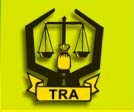Related Research Articles

A limited liability company (LLC) is the US-specific form of a private limited company. It is a business structure that can combine the pass-through taxation of a partnership or sole proprietorship with the limited liability of a corporation. A LLC is not a corporation under state law; it is a legal form of a company that provides limited liability to its owners in many jurisdictions. LLCs are well known for the flexibility that they provide to business owners; depending on the situation, an LLC may elect to use corporate tax rules instead of being treated as a partnership, and, under certain circumstances, LLCs may be organized as not-for-profit. In certain U.S. states, businesses that provide professional services requiring a state professional license, such as legal or medical services, may not be allowed to form an LLC but may be required to form a similar entity called a professional limited liability company (PLLC).

The Alcohol and Tobacco Tax and Trade Bureau, statutorily named the Tax and Trade Bureau and frequently shortened to TTB, is a bureau of the United States Department of the Treasury, which regulates and collects taxes on trade and imports of alcohol, tobacco, and firearms within the United States.
Tax noncompliance is a range of activities that are unfavorable to a government's tax system. This may include tax avoidance, which is tax reduction by legal means, and tax evasion which is the criminal non-payment of tax liabilities. The use of the term "noncompliance" is used differently by different authors. Its most general use describes non-compliant behaviors with respect to different institutional rules resulting in what Edgar L. Feige calls unobserved economies. Non-compliance with fiscal rules of taxation gives rise to unreported income and a tax gap that Feige estimates to be in the neighborhood of $500 billion annually for the United States.
The Canada Revenue Agency is the revenue service of the federal government, and most provincial and territorial governments. The CRA collects taxes, administers tax law and policy, and delivers benefit programs and tax credits. Legislation administered by the CRA includes the Income Tax Act, parts of the Excise Tax Act, and parts of laws relating to the Canada Pension Plan, employment insurance (EI), tariffs and duties. The agency also oversees the registration of charities in Canada, and enforces much of the country's tax laws.

The Treasurer of Australia is a high ranking official and senior minister of the Crown in the Government of Australia who is the head of the Ministry of the Treasury which is responsible for government expenditure and for collecting revenue. The Treasurer plays a key role in the economic policy of the government. The current Australian Treasurer is Josh Frydenberg whose term began on 24 August 2018.

A charitable organization or charity is an organization whose primary objectives are philanthropy and social well-being.

An S corporation, for United States federal income tax, is a closely held corporation that makes a valid election to be taxed under Subchapter S of Chapter 1 of the Internal Revenue Code. In general, S corporations do not pay any income taxes. Instead, the corporation's income and losses are divided among and passed through to its shareholders. The shareholders must then report the income or loss on their own individual income tax returns.
IR35 refers to the United Kingdom's anti-avoidance tax legislation designed to tax 'disguised' employment at a rate similar to employment. In this context, "disguised employees" means workers who receive payments from a client via an intermediary, for example, their own limited company, and whose relationship with their client is such that had they been paid directly they would be employees of the client.
Evasion in law, is a fundamental public policy doctrine, which exists also in the conflict of laws.

The Corporation of the City of Toronto, or simply the City of Toronto, is the organization responsible for the administration of the municipal government of Toronto, Ontario, Canada. Its powers and structure are set out in the City of Toronto Act.
The National Tax Agency is the official tax collecting agency of Japan. As of October 2018, the Commissioner of NTA is Takeshi Fujii.

The Bureau of Internal Revenue(Filipino: Kawanihan ng Rentas Internas, or BIR) is the revenue service of the Philippines and an agency of the Department of Finance. The BIR is responsible for collecting taxes, administering the provisions of the National Internal Revenue Code, executing judgements in favorable cases decided by the Court of Tax Appeals, and releasing memorandums and circulars that implement or clarify various areas of taxation law. It is led by the Commissioner of Internal Revenue, who is appointed by the President of the Philippines. From its establishment to date, the BIR collects more than half of the total revenues of the government every year, although its actions have not been without controversy, as in recent years, the agency and its personnel have been repeatedly involved in allegations of corruption, bribery, and extortion. Nevertheless, during the 2020 fiscal year, the BIR exceeded exceeded its tax collection target by 15.14% despite the COVID-19 pandemic.

The Wisconsin Department of Revenue (DOR) is an agency of the Wisconsin state government responsible for the administration of all tax laws, as well as valuing property and overseeing the wholesale distribution of alcoholic beverages and enforcement of liquor laws. The Department also administers the state's unclaimed property program and the state lottery.

The Royal Malaysian Customs Department, abbreviated RMC or JKDM, is the Malaysian Government agency responsible for administrating the nation's indirect tax policy, border enforcement and narcotic offences. In other words, KDRM administers seven (7) main and thirty-nine (39) subsidiary laws. Apart from this, KDRM implements 18 by-laws for other government agencies. KDRM is now known as JKDM when Ibrahim Jaapar took over as the leader of the department in 2009.

The Tanzania Revenue Authority (TRA) is a semi-autonomous Government Agency of the United Republic of Tanzania. It was established by the Tanzania Revenue Act, CAP. 339 in 1995 and started its operations on the 1st of July 1996.

The Internal Revenue Service (IRS) is the revenue service for the United States federal government, which is responsible for collecting taxes and administering the Internal Revenue Code, the main body of the federal statutory tax law. It is part of the Department of the Treasury and led by the Commissioner of Internal Revenue, who is appointed to a five-year term by the President of the United States. The duties of the IRS include providing tax assistance to taxpayers; pursuing and resolving instances of erroneous or fraudulent tax filings; and overseeing various benefits programs, including the Affordable Care Act.

The State Tax Service of Azerbaijan Republic is the central executive body that ensures the implementation of state tax policy, fulfills timely and full collection of taxes and other revenues to the state budget and exercises state control within the framework of a single financial and budgetary policy implemented in the Republic of Azerbaijan.

The Ghana Revenue Authority (GRA) is the Ghana administration charged with the task of assessing, collecting and accounting for tax revenue in Ghana. The core mandate of the Authority is to ensure maximum compliance with relevant laws in order to ensure a sustainable revenue stream for government as well as the controlled and safe flow of goods across the county’s borders.
The Internal Revenue Manual (IRM) is an official compendium of internal guidelines for personnel of the United States Internal Revenue Service (IRS).

Philippine Economic Zone Authority (PEZA) is a government agency in the Philippines attached to the Department of Trade and Industry created to help promote investments in the export-oriented manufacturing industry into the country by assisting investors in registering and facilitating their business operations and providing tax incentives. PEZA also assists investors who locate in service facilities inside selected areas in the country which are usually business process outsourcing and knowledge process outsourcing firms. Other activities also eligible for PEZA registration and incentives include establishment and operation within special economic zones for tourism, medical tourism, logistics and warehousing services, economic zone development and operation and facilities providers.
References
- 1 2 "The Mauritius Revenue Authority Act 2004" (PDF). MRA. Retrieved 6 July 2018.